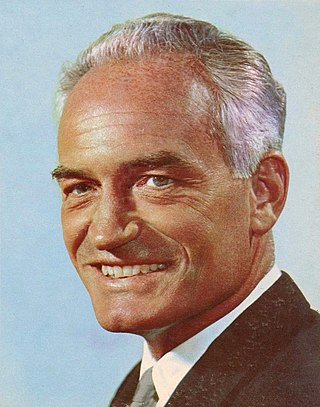Classical liberalism is a political tradition and a branch of liberalism that advocates free market and laissez-faire economics and civil liberties under the rule of law, with special emphasis on individual autonomy, limited government, economic freedom, political freedom and freedom of speech. Classical liberalism, contrary to liberal branches like social liberalism, looks more negatively on social policies, taxation and the state involvement in the lives of individuals, and it advocates deregulation.
Decentralization or decentralisation is the process by which the activities of an organization, particularly those regarding planning and decision-making, are distributed or delegated away from a central, authoritative location or group and given to smaller factions within it.

Technological utopianism is any ideology based on the premise that advances in science and technology could and should bring about a utopia, or at least help to fulfill one or another utopian ideal.
Criticism of libertarianism includes ethical, economic, environmental and pragmatic concerns. With right-libertarianism, critics have argued that laissez-faire capitalism does not necessarily produce the best or most efficient outcome, and that libertarianism's philosophy of individualism and policies of deregulation fail to prevent the abuse of natural resources. Criticism of left-libertarianism is instead mainly related to anarchism. Left and right-libertarians also engage in criticism of each other.
Right-libertarianism, also known as libertarian capitalism, or right-wing libertarianism, is a libertarian political philosophy that supports capitalist property rights and defends market distribution of natural resources and private property. The term right-libertarianism is used to distinguish this class of views on the nature of property and capital from left-libertarianism, a type of libertarianism that combines self-ownership with an egalitarian approach to property and income. In contrast to socialist libertarianism, right-libertarianism supports free-market capitalism. Like most forms of libertarianism, it supports civil liberties, especially natural law, negative rights, the non-aggression principle, and a major reversal of the modern welfare state.
"The Californian Ideology" is a 1995 essay by English media theorists Richard Barbrook and Andy Cameron of the University of Westminster. Barbrook describes it as a "critique of dotcom neoliberalism". In the essay, Barbrook and Cameron argue that the rise of networking technologies in Silicon Valley in the 1990s was linked to American neoliberalism and a paradoxical hybridization of beliefs from the political left and right in the form of hopeful technological determinism.

Libertarian conservatism, also referred to as conservative libertarianism and conservatarianism, is a political and social philosophy that combines conservatism and libertarianism, representing the libertarian wing of conservatism and vice versa.

Cyberethics is the philosophic study of ethics pertaining to computers, encompassing user behavior and what computers are programmed to do, and how this affects individuals and society. For years, various governments have enacted regulations while organizations have defined policies about cyberethics.

Censorship is the suppression of speech, public communication, or other information. This may be done on the basis that such material is considered objectionable, harmful, sensitive, or "inconvenient". Censorship can be conducted by governments, private institutions, and other controlling bodies.

Code and Other Laws of Cyberspace is a 1999 book by Lawrence Lessig on the structure and nature of regulation of the Internet.

Freedom of speech is a principle that supports the freedom of an individual or a community to articulate their opinions and ideas without fear of retaliation, censorship, or legal sanction. The right to freedom of expression has been recognised as a human right in the Universal Declaration of Human Rights and international human rights law by the United Nations. Many countries have constitutional law that protects free speech. Terms like free speech, freedom of speech, and freedom of expression are used interchangeably in political discourse. However, in a legal sense, the freedom of expression includes any activity of seeking, receiving, and imparting information or ideas, regardless of the medium used.

Jillian C. York is an American free-expression activist and author. She serves as Director of International Freedom of Expression at the Electronic Frontier Foundation (EFF), and a founding member of Deep Lab. She is the author of Silicon Values: The Future of Free Speech Under Surveillance Capitalism and Morocco - Culture Smart!: the essential guide to customs & culture.

Julian Paul Assange is an Australian editor, publisher and activist who founded WikiLeaks in 2006. He came to wide international attention in 2010 when WikiLeaks published a series of leaks from US Army intelligence analyst Chelsea Manning: footage of a US airstrike in Baghdad, US military logs from the Afghanistan and Iraq wars, and US diplomatic cables. Assange has won multiple awards for publishing and journalism.
Cyber-utopianism or web-utopianism or digital utopianism or utopian internet is a subcategory of technological utopianism and the belief that online communication helps bring about a more decentralized, democratic, and libertarian society. The desired values may also be privacy and anonymity, freedom of expression, access to culture and information or also socialist ideals leading to digital socialism.
Mass media regulations are a form of media policy with rules enforced by the jurisdiction of law. Guidelines for media use differ across the world. This regulation, via law, rules or procedures, can have various goals, for example intervention to protect a stated "public interest", or encouraging competition and an effective media market, or establishing common technical standards.
Paulina Borsook is an American technology journalist and writer who has written for Wired, Mother Jones, and Suck.com. She is perhaps best known for her 2000 book Cyberselfish, a critique of the libertarian mindset of the digital technology community. As an artist-in-residence at Stanford University, in 2013 she began work on My Life as a Ghost, an art installation based on her experiences living with the traumatic brain injury she suffered due to a gunshot when she was 14 years old.
Technoliberalism is a political philosophy founded on ideas of liberty, individuality, responsibility, decentralization, and self-awareness. It also highlights an idea that technology should be available to everyone with minimal controls. Its core beliefs fit under five main interests that include Construction of the Government, Economics, Civil Liberties, Education and Science, and Environment. Technoliberals support such ideas as balance of powers in the government, decentralization, affordable education, the protection of our planet, Fine Arts, and the freedom of speech and communication technologies.
Anti-statism is any approach to social, economic or political philosophy that rejects statism. An anti-statist is one who opposes intervention by the state into personal, social and economic affairs. In anarchism, this is characterized by a complete rejection of all involuntary hierarchical rulership. In minarchism, the state is viewed as necessary but should be minimized to only basic functions for societal order, such as the provision of courts, law enforcement, andmilitary.
Transhumanist politics constitutes a group of political ideologies that generally express the belief in improving human individuals through science and technology. Specific topics include space migration, and cryogenic suspension. It is considered the opposing ideal to the concept of bioconservatism, as Transhumanist politics argue for the use of all technology to enhance human individuals.
A classless society is a society in which no one is born into a social class like in a class society. Distinctions of wealth, income, education, culture, or social network might arise and would only be determined by individual experience and achievement in such a society. Thus, the concept posits not the absence of a social hierarchy but the uninheritability of class status. Helen Codere defines social class as a segment of the community, the members of which show a common social position in a hierarchical ranking. Codere suggest that a true class-organized society is one in which the hierarchy of prestige and social status is divisible into groups. Each group with its own social, economic, attitudinal and cultural characteristics, and each having differential degrees of power in community decision.








